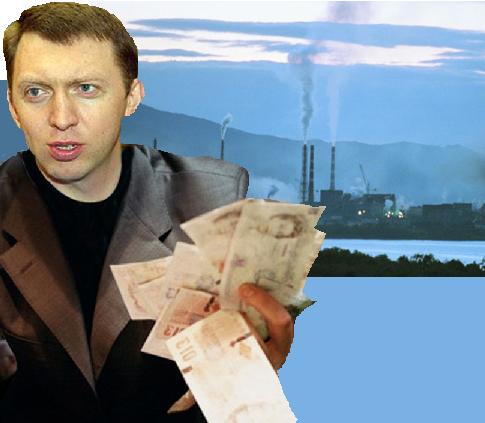
Russian people are used to humiliation and oppression, but they always draw the line at Lake Baikal.
This is a lesson that PM Vladimir Putin should have considered carefully before giving his chum and Russia’s richest man Oleg Deripaska (pictured above) the green light to begin polluting the UNESCO-protected national treasure.
When the Soviet government decided to build the Baikalsk cellulose plant which now belongs to Deripaska on the world’s largest and most pristine freshwater lake to “produce a “super” cellulose that could be used to make durable jet tires for Soviet Air Force planes” back in 1954, it had laid the seeds of its own destruction.
Indeed, mere months after the death of Stalin and with memories of the GULAG still tragically fresh, “people who had mutely obeyed the Soviet government for 40 years finally howled in protest”: “Local scientists, writers, fishermen, and ordinary citizens banded together to fight the plant, igniting an environmental movement that was a direct forebear of all Soviet activism to come”.
In fact, Putin had been defeated at Baikal once before, when pressure from environmental groups forced him to re-route an oil pipeline in 2006.
This time, the prime minister has cynically made use of the economic crisis to adopt the rhetoric of jobs creation as a rationale for reopening the paper mill.
And besides, the closure of the mill last year actually augured scores of new job prospects in eco-tourism. One such hopeful entrepreneur was quoted as saying: “There are very few regulations for tourism or the environment here. We want to encourage tourism but so that locals and the lake benefit, not big companies.”
That, of course, is the crux of the matter. Whereas the Soviet pollution of the Baikal was driven by the prerogatives of the arms race, the current government is motivated only by greed and securing the loyalty of the oligarchs; the last thing it is interested in is loosening the grip of big business.
However, Putin may not have much choice but to relent:
According to the WWF, “over 30,000 people have already signed a petition asking President Dmitry Medvedev to prevent what could become and environmental catastrophe and cancel the government decree which puts short-term financial interests above a sustainable future for the world’s largest lake”.
Demonstrations were held over the weekend all across Russia, including my hometown, Murmansk, where “ecologists collected 300 signatures protesting the reopening of the Baikal plant” and even called on Putin to resign.
Meanwhile, in an article by Tom Balmforth, Carnegie’s Nikolai Petrov said: “I think it is almost inevitable that the Kremlin will repeal the decision. If you bear in mind that very little can be done by the government in order to pacify the protestors, and if you look at the history of the protest of the oil pipeline – they were a constant headache for the Kremlin”.
He would be wise to listen carefully to the protesters, for the sake of his political future: According to Prof. Douglas Weiner, the Soviet ecological movement that first mobilised around Lake Baikal remained under the official radar because ‘the regime’s perceptual apparatus didn’t allow it to see nature-protection as political speech or having counter-culture potential’. Until it was too late.